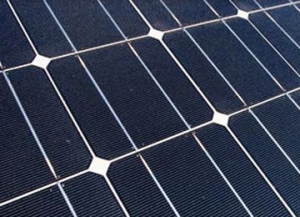Feb 9 2011
Suniva, Inc., a U.S. manufacturer of high-efficiency monocrystalline silicon solar cells and modules, today announced its next generation ARTisun™ Select series solar cells are in production.
These next generation cells are achieving conversion efficiencies of more than 19 percent, a record for screen-printed cells in full-scale production. Suniva attains these efficiencies using a uniform single-sided emitter along with other proprietary innovations on the front side of the cell. Suniva is the first company to successfully leverage ion implantation as an enabling technology in the mass production of solar cells.
 Suniva ARTisun™ Select Solar Cells
Suniva ARTisun™ Select Solar Cells
Suniva’s unique intellectual property and proprietary processing capabilities, combined with several years of collaborative research and development on ion implantation technology, enables the company to bring ARTisun Select to the market and into full production as the first of its kind using this unique manufacturing technology. Additionally, Suniva simplified its solar cell manufacturing process by eliminating two entire steps, which allows the company to more cost-effectively produce its record-setting cells. The use of ion implantation in Suniva’s manufacturing process is based on years of development collaboration with Varian Semiconductor Equipment Associates (NASDAQ: VSEA).
“Combined with Suniva’s innovative R&D and proprietary processes, ion implantation provides us with a very cost-effective way to manufacture solar cells of 19 percent efficiency without adding complex processes for a selective emitter. We do have the capability to use a selective emitter, but we have not yet chosen to do so,” said Dr. Ajeet Rohatgi, Suniva founder and CTO. “Our unique development process is what will ultimately enable Suniva to achieve efficiencies in the 20 percent range in our third generation cells on n-type wafer and maintain an equally attractive manufacturing cost.”
Suniva’s record-setting efficiencies for low cost cells are being integrated across its module line with module level efficiencies of 16+%. The ARTisun Select product line is a logical progression on Suniva’s technology roadmap towards its next generation products that are in its labs. This technology roadmap is built around multiple proprietary cell structures certified by NREL as achieving 20% efficiency. Suniva previously achieved industry-leading, certified efficiencies of more than 20 percent on screen-printed cells in the lab.
“Leveraging ion implantation in solar cell processing has traditionally proven too costly and slow. Combined with Suniva’s deep research and our own proprietary design, recipes and processes, we have unlocked the value of the ion implanter as an enabling technology for solar cell processing. The result is an immediate, one percent efficiency gain in ARTisun Select, and an ongoing reduction in our cell conversion costs,” said Bruce McPherson, vice president of research and development for Suniva. “We are quite confident that this is just the first step in a multistep process which will take Suniva well into the 20% category of efficiencies while still maintaining low cost screen printed manufacturing processes. Through continued innovation, optimization and modification of cell design and manufacturing processes, and by leveraging both our unique R&D relationship with the University Center of Excellence in Photovoltaics (UCEP) and strategic 3rd party technology collaborations , such as Varian, Suniva will continue to lead the market in efficiencies so far unattained in low-cost solar cell manufacturing.”